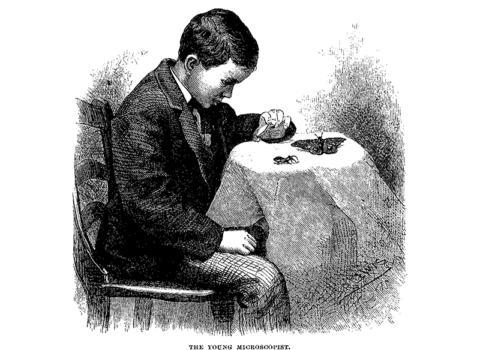I had to cheer when I read the news the other week about a French company that’s selling an ad-blocking service on the Internet. Xavier Niel, the entrepreneurial owner of the web-service provider Free, is threatening to smash the advertiser-supported “free-content” model. That model has transformed Google’s Larry Page, Sergey Brin, and Eric Schmidt into media barons who make William Randolph Hearst look like a small-time operator. Niel, it seems, would also like to make the Internet “free,” but in a way that horrifies the so-called content providers — that is free of paid advertising.
As publisher of a magazine that specializes in substantive, complex, and occasionally lengthy journalism and literature, and that also lives off advertising, I’ve long objected to Google’s systematic campaign to steal everything that isn’t welded to the floor by copyright — while playing nice with its idiotic slogan “Don’t be evil.”
As a journalist and board member of the Authors Guild, I’ve watched in dismay as writers, living and dead, have suffered steep drops in income and copyright control thanks to Google’s — and its smaller rivals’ — logistical support for pirating and repackaging everything that we writers, editors, and publishers hold dear. From the humblest newspaper reporter to the most erudite essayist, we do the work, we invest the money and time, some of us risk our lives — and Google, broadly speaking, reaps the benefits without spending a dime.
This for-profit theft is committed in the pious guise of universal access to “free information,” as if Google were just a bigger version of your neighborhood public library. Acceptance of such a fairy tale lets parasitic search engines assert that they are “web neutral,” just disinterested parties whose glorious mission is to educate and uplift.
This is nonsense, of course. Google’s bias for search results that list its own products above those of its competitors is now well-known, but equally damaging, and less remarked, is the bias that elevates websites with free content over ones that ask readers to pay at least something for the difficult labor of writing, editing, photographing, drawing, and painting and thinking coherently. Try finding Harper’s Magazine when you Google “magazines that publish essays” or “magazines that publish short stories” — it isn’t easy.
Or try to get up-to-date news about Xavier Niel and Free through your friendly local Google search engine. Not exactly web neutral, our buddy-philanthropists Larry, Sergey, and Eric.
Publishers and writers are belatedly recognizing the self-defeating nature of their own free-content platforms, as advertising is dispersed through the Internet in more and more fractionalized and lower-cost quantities. But these authentic content producers have been largely complicit in their own decline by aiding and abetting the childish belief that search engines are intended to educate (as opposed to making money for their owners) and that education via the Internet can bypass the necessary struggle of reading, analyzing, and connecting texts, in depth and over time.
“We’ll do it for you,” say Larry, Sergey, and Eric, and it will all be free! Now Larry, Sergey, and Eric are billionaires, while the average writer and teacher can barely make ends meet.
Thus proceeds the infantilization of the American public, hooked more than ever on superficial, unchecked information sometimes rewritten from more reliable, though uncredited sources. It’s no coincidence that Google, Yahoo!, Bing, and Yelp sound like toddler gibberish from the Teletubbies.
Whenever I hear these silly corporate names invoked with sanctimonious awe, I imagine Dipsy, Laa-Laa, Po, and Tinky-Winky singing their hit single “Teletubbies say ‘Eh-oh’ ” as they shake the change out of some two-year-old’s pocket. Come to think of it, Eric Schmidt’s new playmate, the North Korean dictator Kim Jong Un, bears a more than superficial resemblance to Po.
Where will it end, as the dumbing down of America accelerates and Google becomes ever more dominant? A psychoanalyst friend tells me that listening to baby talk may be gratifying up to a point, but that constant subjection to it produces unconscious rage in adults. This unending assault of babble potentially could lead to revolutionary conditions in which the new writer-teacher proletariat rises up to overthrow the Internet oligarchy and the politicians and government agencies who protect it. (See, for example, the Federal Trade Commission’s dropping of its antitrust investigation of Google in early January because Google’s practices actually help consumers. Google spends much time and money lobbying for its interests in Washington — an estimated $25 million during the FTC probe.)
Or, perhaps as likely, the relentless stream of googoo-gaga propaganda from Larry, Sergey, and Eric will further deaden the senses of a people inured to violence in their films, their newspapers (which report on a largely unaccountable American army’s patriotic mission against the infidel in foreign lands), and in their own hometowns.
There’s no need to despair, however. Little kids love free stuff and we can still watch Teletubbies for free on YouTube. All together now, sing “Eh-oh!”



